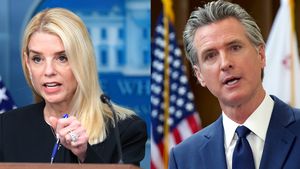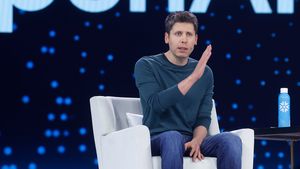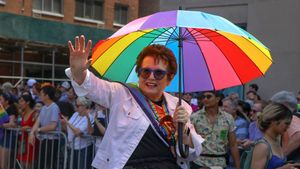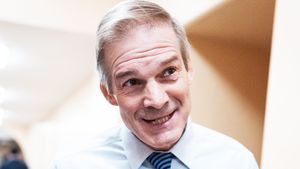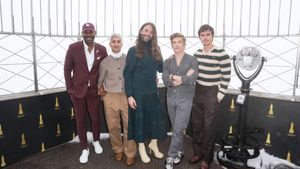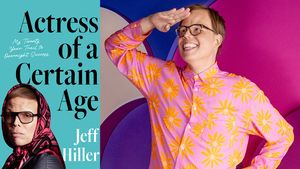Australian Prime Minister Kevin Rudd is making headlines after his most recent Q&A for the Australian 2013 election. When a local pastor challenged Rudd's political and religious stance, the Prime Minister confidently defended same-sex marriage.
The pastor's statement/question began:
"Marriage is between husbands and wives. Jesus said a man shall leave his father and mother and be married and that's the biblical definition. I just believe in what the Bible says and I'm just curious, for you Kevin, if you call yourself a Christian, why don't you believe the words of Jesus in the Bible?"
The debate on marriage equality has encountered this question many times. Rudd, however, offered an answer so articulate, logical, and well-argued that he commanded the room's attention, consideration, and reconsideration. As he stated:
"Well, mate, if I was going to have that view, the Bible also says that slavery is a natural condition because some polls said in the New Testament, 'slaves be obedient to your masters,' and therefore we should have all fought for the confederacy in the US Civil War. I mean, for goodness sake, the human condition and social conditions change. What is the fundamental principal of the New Testament? It is one of universal love. Loving your fellow man. And if we get obsessed with a particular definition of that through a form of sexuality then I think we are missing the centrality of what the Gospel -- whether you call it a social Gospel, a personal Gospel, or a spiritual Gospel -- is all about. And therefore, I go back to my question, If you think homosexuality is an unnatural condition, then frankly, I cannot agree with you based on any elements of the science. And, therefore, if a person's sexuality is as they are made, then you got to ask the second question: Should their loving relationships be legally recognized? And the conclusion I've reached is that they should."
The most surprising thing about Rudd's response? He didn't always support same-sex marriage. In fact, he did not endorse same-sex marriage until May, when he changed his view in an essay titled, "A Matter for the State, Not Church." The piece is a more-detailed explanation of his recognition of marriage for gay men and women and is one of the best works I've read on the topic.
Rudd closes the essay with the following words:
"Some will ask why I am saying all this now. For me, this issue has been a difficult personal journey, as I have read much, and talked now with many people, and of late, for the first time in a long time, I have had the time to do both. I have long resisted going with the growing tide of public opinion just for the sake of it. Those who know me well know that I have tried in good conscience to deal with the ethical fundamentals of the issue and reach an ethical conclusion...For the record, I will not be taking any leadership role on this issue nationally. My core interest is to be clear-cut about the change in my position locally on this highly controversial issue before the next election, so that my constituents are fully aware of my position when they next visit the ballot box. That, I believe, is the right thing to do."
Rudd's essay and Q&A are evidence of an important truth: People -- whether they identify as religious, political, or none of the two -- can change and inspire others to change in turn. The Q&A audience cheered loudly in Rudd's defense, and we do, too.
Make sure to read Rudd's full essay here and watch the Q&A posted below.





















